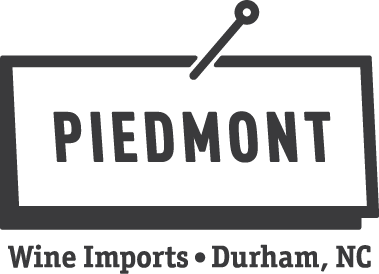#2: Mas Haut-Buis Les Carlines Blanc/A fictional dinner with Olivier Jeantet
Terrasses du Larzac, a very real place.
Who is the mysterious Olivier Jeantet? We’ve never really met. At a winery visit six years ago we exchanged hellos while his Anglophone partner Geraldine Laval showed me around. He was working. We don’t share a language. I perceived the sales aspect doesn’t interest him much.
So Les Carlines blanc can be anything to me. A walk through a stone-covered field. A scrubby, abandoned place. Ruined huts for shepherds. Thorny vines along narrow footpaths.
If I were to share a meal with Olivier Geantet over a bottle of Les Carlines blanc, what would the ideal dinner be? The wine is aromatic of freshly picked summer herbs, the sweetest of basil. On the palate it's vivid. Mineral, like wine that bubbled up through a stone basin into my glass. Lemon verbena aromas that stick around. The finish has some tang, a pleasantly rind-like quality parallel to astringency.
In deference to French food in all its fromage-fueled glory (let’s face it, there is no better dairy than salty beurre de baratte) I’d share a first meal with Olivier in a quiet bar in the heart of Tokyo. We’d be freed from our lack of a shared language by the forced hushed atmosphere of a dark formal space, and the introduction of a third service language.
I’d meet Olivier at the unmarked entrance. The exterior would be shabby, an unfashionable stretch of street close to a throbbing furnace of capitalism. Wheat-pasted posters for fast fashion half torn from stuttered facades. More trash than one expects in imaginary Japan.
A moment past our scheduled arrival (nothing by chance) a small older woman would emerge, dressed in black. A smile would beckon to seats at the end of a 300-year-old cypress wood bar. Chefs would stand behind it. Sincere, studied, professional, not gratuitous. Urbanites would line the shoebox space. Ostentatious, reverent, some slightly drunk already.
Our set ups are mirror image: mine left-handed, his right-handed. Both would be millimeter perfect. It took a ghost server hours to align with such precious conformity.
Small delights buzz past. Perfect uni-topped hand rolls are presented. A flood gate of singular flavor opens. Monkfish liver, abalone, baby sardines, hamaguri. We sip rare sake selected by a faintly obsequious, wildly pompadoured middle-aged sommelier. Silence settles from nervous to profound. It’s a meal of breathtaking intentionality.
Flavors provoke memories. A person is quietly crying. Some bites taste like encapsulated lifetimes. We reach the midway point. Time accelerates.
Our friend with the lacquered hair and brilliant smile opens Les Carlines. Chefs slice bluefin purchased that morning at Kuromon Market in Osaka. Akami, Chutoro, Otoro, the last slice so saturating that chalky pithy Carlines is essential counterweight to its richness.
Jeantet and I exchange few words during the imaginary meal. International lingua franca pleasantries. The absurdity of fine dining is briefly swept away by the beauty of it all, the flavors of two rough worlds colliding. The terrestrial: scrub and rock and wind that bore Jeantet’s white wine. The subaquatic: a terrifying black void that yields the most stirring, emotionally laden sustenances we consume. Is it the alienness of these flavors that make them uniquely compelling? Do we need something from that parallel universe to feel whole?
If I spoke French, maybe Olivier Jeantet could guide my intoxicated thoughts to a satisfying conclusion. As mute companions for a dream meal, we must resolve the issue individually. What makes a wine from Jeantet’s homeland so perfect with a cuisine forged two continents away? Certainly our sommelier could answer. In Japanese. The smile lines of his face betray understanding of essential truths. I wouldn’t play a game of poker against him.


